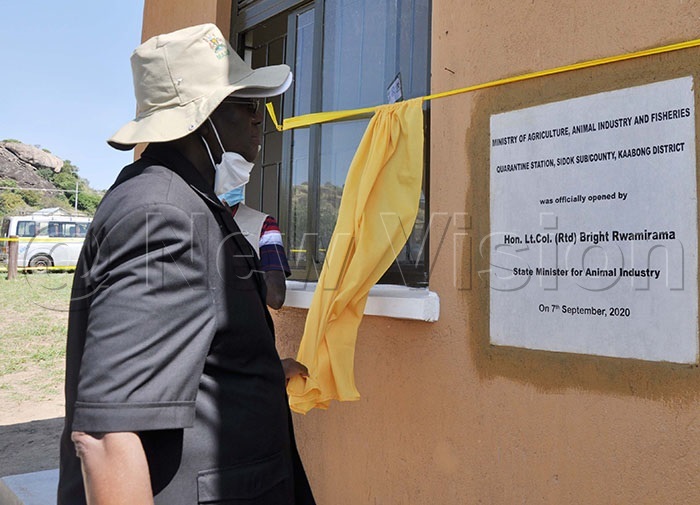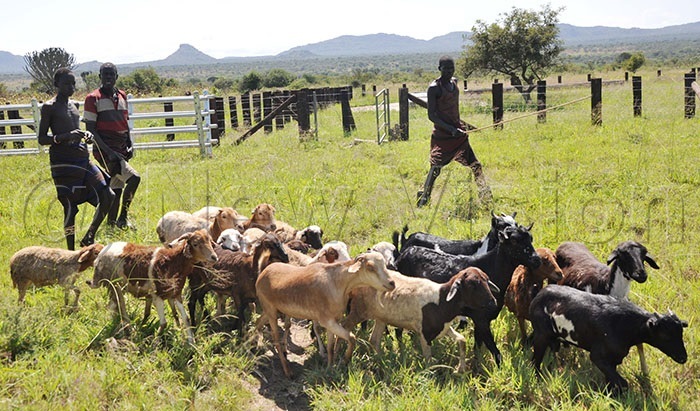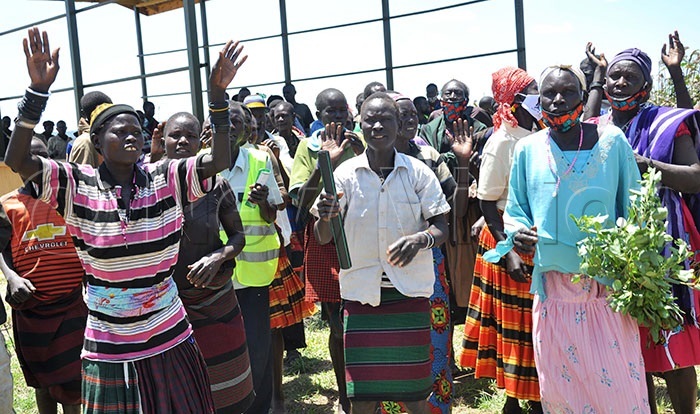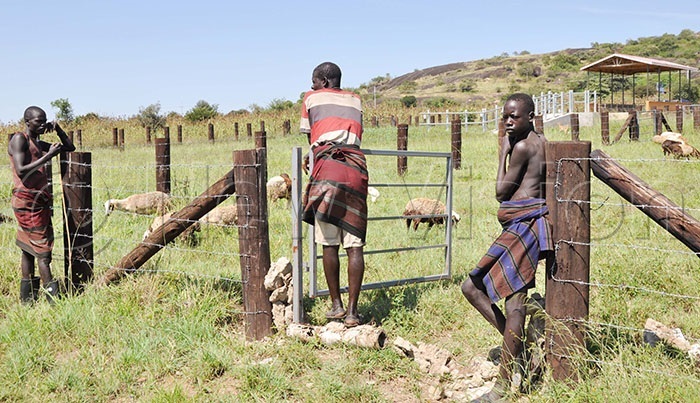Govt invests Sh140b in construction of livestock production
The infrastructure is being constructed in Amudat, Abim, Amuria, Bukedea, Kaabong, Kotidi, Katakwi, Kumi, Kween, Moroto, Napak and Nakapiripirit districts.
LIVESTOCK|PRODUCTION|MARKETING
KARAMOJA - Government has injected over $40m worth of sh140b in the construction of livestock production and marketing infrastructure in 12 districts.
The infrastructure is being constructed in Amudat, Abim, Amuria, Bukedea, Kaabong, Kotidi, Katakwi, Kumi, Kween, Moroto, Napak and Nakapiripirit districts.

The project fund was a loan, secured from the World Bank to enhance livelihood resilience of pastoral and agropastoral communities in cross border drought prone areas.
Among the infrastructures constructed in the different districts include, valley dams, livestock marketing and production infrastructure, slaughter sheds, animal holding grounds, quarantine stations, cattle markets, stand alone cattle clashes and valley taps.
Addressing journalists during the commissioning of the livestock production and marketing infrastructure in Kaabong district recently, Bright Rwamirama, the State minister for Animal Industry, said: "Due to drought and conflicts related to accessing natural assets, the project is aimed at increasing access to sustainably manage water and land resources for pastoral and agro pastoral communities."

He explained that it will also encourage livestock keepers to intensify trade in order to attain better income and contribute to the national economy.
However, Rwamirama advised Karamojongs to maintain the quality and standards of their livestock and the markets.
"With the infrastructure put in place, you should be prepared to participate in the supply of quality animals to be taken to the slaughter abattoirs which have been built for both export and domestic market," explained Rwamirama.
With the new facilities coupled with a live stock market information system, Dr Stephen Kajura, the National project coordinator, told farmers to take advantage and negotiate higher prices for their livestock.

Although Uganda's beef ranks highest in demand compared to well-known international beef source origins, Kajura acknowledged that the capacity to supply the required number and quality of cattle to the export abattoirs on a sustainable basis is still lacking.
According to Rwamirama, the ministry is in the process of finding management and cattle policy which is aimed at addressing administrative, social, economic, political and technological factors that impact negatively on livestock keepers.
"Instead of loading many cows on the truck and spending millions on transport, you can slaughter from here and have a contract with refrigerated trucks which can take meat to Kenya, Kampala, Jinja and Mbale." Rwamirama suggested.
To intensify export trade so as to better pastoralists income and contribute to the national Budget, Rwamirama advised Karamajongs to take advantage of the East African Common markets like Burundi, Kenya, Rwanda and South Sudan.

To effectively utilize the facility, Rex Aachilla , Resident District Commissioner Kaabong district requested the government to put an army barracks in the region in order to provide security to the cattle keepers from Kaabong and Kotido.
"We have seen a resurgence of insecurity coming from cattle rustling. Although recently, UPDF came to contain the situation, there is still progress of cattle rustling which is spoiling the government's intention to empower the people and fight poverty," disclosed Aachilla.
To ensure this project is productive enough, David Kappitto, Moruitit LC I chairman, Sidok subcounty in Kaabong district requested the government to avail karamojong children, students with hands on skills which can help them enhance livestock production.
"I appreciate the government for investing in the Karamoja region for it will transform the livelihoods of pastoralists." Kappitto concluded.